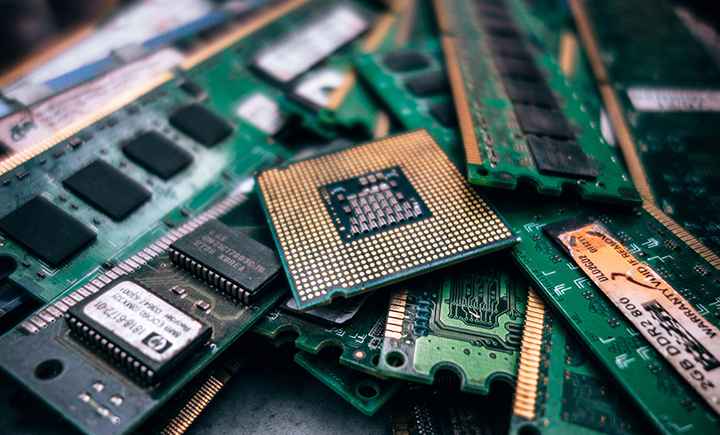Don’t ignore the hardware
Alumnus Dmitry Evtyushkin, PhD ’17, talks through the circumstances of the Meltdown and Spectre attacks and what they mean for the future of cybersecurity.

Earlier this year, it was revealed that Intel, AMD and ARM processors have a design feature that could allow access to personal information via Spectre or Meltdown attacks.
Google’s Jann Horn was one of the researchers to discover the attacks and gave credit to a study done by Binghamton University’s professor Dmitry Ponomarev, University of California, Riverside’s professor Nael Abu-Ghazaleh and the College of William and Mary’s assistant professor Dmitry Evtyushkin.
Evtyushkin worked on the study while he was a PhD student at Binghamton University and recently shared his thoughts on the processor crisis that made headlines across the globe.
While many read the news with panic, Evtyushkin said it was a “pleasant surprise.”
“Before this story came out, all that research was too technical. Few people really understood it so this brought the importance of those studies into the spotlight,” he said. “It was nice too to see how your work evolves into something much bigger.”
Evtyushkin said he saw the flaw as almost inevitable given what most people focus on when making processors.
“There are design considerations and a trade-off between security and performance. Most companies focus on performance and built their design around that,” he said.
This focus on performance is what made the design flaw in processors possible in the first place.
Evtyushkin’s work with Ponomarev and Abu-Ghazaleh worked on a similar flaw. “We discovered that one mechanism was shared and it wasn’t secure. That was just one application of how the bigger flaw came to be recognized,” he said.
As for the future of computer science research, Evtyushkin says he sees the area of hardware security as the place for future development.
“Companies used to ignore the hardware security aspect while they focused on performance and ease of use,” he explained. “Now, the focus is on how to actually build secure hardware without sacrificing performance.”
Evtyushkin has continued working in cybersecurity, applying the techniques he came up with during his doctoral studies, as an assistant professor at the College of William and Mary.
He said he still stays connected to Ponomarev and Abu-Ghazaleh as well as a few of his fellow classmates from the Binghamton University Computer Science Department and appreciates having the community of computer science researchers.
While the exposure of Spectre and Meltdown might seem like a cause for fear, Evtyushkin sees the situation as much more hopeful. He said that the publicity surrounding these attacks will actually force manufacturers to address design flaws and make adjustments to processor hardware that will lead to more secure systems in the future.
